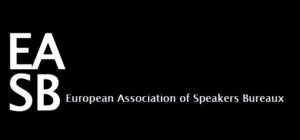Could It Be Menopause? How Our Speakers Help Audiences Recognise the Early Signs
Menopause is a natural life stage, yet for many women and people who menstruate, its early signs can be confusing, overlooked, or misattributed to other causes. In the workplace especially, these symptoms can quietly impact wellbeing, confidence, and productivity long before menopause is openly acknowledged.
At The Speakers Agency, we work with expert menopause speakers who bring clarity and reassurance to audiences. Their talks not only explain what to look out for but also empower individuals, teams, and organisations to support people going through this transition.
Why Does Awareness of Early Menopause Symptoms Matter?
Recognising the early signs of menopause is crucial because symptoms can appear years before a formal diagnosis. Many people do not realise that perimenopause (the stage leading up to menopause) can begin in the early 40s or even earlier. Because the symptoms vary so widely, they are often misdiagnosed or dismissed, leading to unnecessary stress and delays in treatment.
In workplaces, schools, and communities, this lack of understanding can have real consequences. People may feel isolated, underperform at work due to fatigue or brain fog, or struggle with confidence in their abilities. By raising awareness early, employers and organisations can create supportive environments that protect wellbeing, improve retention, and reduce stigma.
What Are the Common Early Signs of Menopause?
What physical symptoms are often missed?
Some of the earliest indicators of menopause are physical changes that can easily be mistaken for stress, ageing, or lifestyle issues. Irregular periods are a common first sign, but other symptoms such as persistent fatigue, disrupted sleep, hot flushes, joint pain, and increased headaches can also signal hormonal changes. Because these symptoms come and go, many people do not connect them to menopause until they become more severe.
What psychological and emotional shifts can occur?
Menopause is not only a physical transition but also an emotional one. Early signs may include mood swings, irritability, anxiety, or loss of confidence. Brain fog and memory lapses are also widely reported, leaving people feeling unlike themselves. These psychological changes can be particularly difficult because they affect self-esteem and work performance, yet they are less visible to colleagues or managers. Understanding that these shifts are part of the menopause journey can help individuals feel less alone and more empowered to seek support.
How Do Menopause Speakers Help Audiences Understand These Changes?
How do speakers break the taboo and spark conversation?
Talking openly about menopause has long been considered uncomfortable, but expert speakers are helping to change that. At The Speakers Agency, we’ve seen a real influx of enquiries for menopause speakers in the last few years. In October 2024, it was our most booked ‘topic’ for that month! This is really positive progress, and it’s great that the dialogue is becoming more open. Our speakers have really helped with this openness. By sharing real-life experiences alongside medical expertise, speakers such as Dr Nighat Arif, Katie Taylor and Nina Kuypers create safe spaces for dialogue. Their honest, relatable storytelling dismantles stigma and encourages audiences to see menopause as a shared experience rather than a hidden struggle.
How are menopause talks tailored for different audiences?
One of the strengths of menopause speakers is their ability to adapt sessions to different audiences. In corporate settings, talks often focus on workplace wellbeing and policy, helping HR and leadership teams build more inclusive support systems. In schools or public health settings, speakers provide practical knowledge for teachers, carers, and communities. This tailoring ensures that every audience – from small teams to large conferences – leaves with relevant insights and actionable steps.
One common misconception is that Menopause talks are solely for women. We have lots of Women’s Networks and ERGs contact us to organise talks for their members. But, our speakers will always reiterate that their talks are designed for everyone, regardless of gender. In fact, the talks are often particularly useful for men as most of the men in an organisation will have people in their lives who will eventually experience menopause; be it their spouses, mothers, sisters etc.
What Do Audiences Gain from Menopause Talks?
How do these talks lead to better support systems in the workplace?
When organisations host menopause talks, they often see a ripple effect in awareness. Businesses may review existing policies, introduce flexible working options, or create peer support networks. Employees feel more valued when their needs are acknowledged, and managers gain the confidence to have informed, compassionate conversations. The result is a healthier workplace culture that supports both retention and performance.
How does understanding symptoms improve confidence and health literacy?
Knowledge is empowering. When individuals learn to recognise the early signs of menopause, they are more likely to seek medical advice sooner and feel reassured that what they are experiencing is normal. This improved health literacy not only benefits their wellbeing but also restores confidence in their personal and professional lives. Audiences leave talks feeling better equipped to manage symptoms, support colleagues, and advocate for themselves.
Conclusion – Why Does Support Start with Understanding?
The early signs of menopause can be subtle, but their impact on individuals and workplaces can be significant if left unrecognised. By raising awareness through our expert menopause speakers, organisations create supportive environments where people feel understood and empowered.
At The Speakers Agency, we connect event organisers with leading voices who combine evidence-based insight with lived experience, helping audiences make sense of menopause and inspiring meaningful change.
Speak to our team today to book a menopause speaker and start building awareness, confidence, and support in your organisation.







